Hyundai i30 VS Toyota Hilux – Specs, Efficiency & Price Comparison
Which model is the better choice – the Hyundai i30 or the Toyota Hilux? We compare performance (140 HP vs 204 HP), boot capacity (395 L vs ), efficiency (5.60 L vs 8.70 L), and of course, the price (23600 £ vs 40800 £).
Find out now which car fits your needs better!
The Hyundai i30 (Hatchback) is powered by a Petrol or Petrol MHEV engine and comes with a Manuel or Automatic transmission. In comparison, the Toyota Hilux (Pickup) features a Diesel or Diesel MHEV engine and a Automatic gearbox.
When it comes to boot capacity, the Hyundai i30 offers 395 L, while the Toyota Hilux provides – depending on what matters most to you. If you’re looking for more power, you’ll need to decide whether the 140 HP of the Hyundai i30 or the 204 HP of the Toyota Hilux suits your needs better.
There are also differences in efficiency: 5.60 L vs 8.70 L. In terms of price, the Hyundai i30 starts at 23600 £, while the Toyota Hilux is available from 40800 £.
Compare all the key specs now and find out which model fits your lifestyle best!
Hyundai i30
The Hyundai i30 stands out in the hatchback segment with its sleek design and modern features. It offers a comfortable ride with a well-crafted interior that caters to both driver and passengers. With its emphasis on safety and technology, the i30 provides a balanced driving experience suitable for urban and suburban environments.
details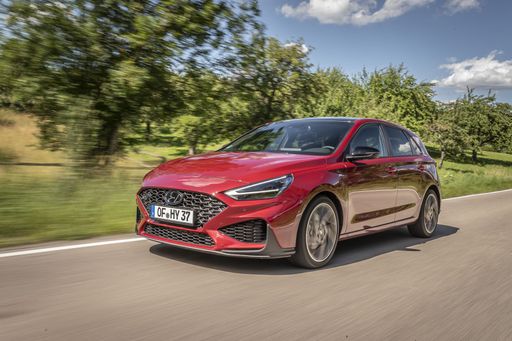 @ hyundai.news
@ hyundai.news
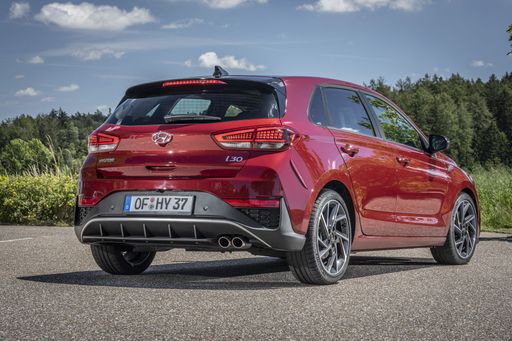 @ hyundai.news
@ hyundai.news
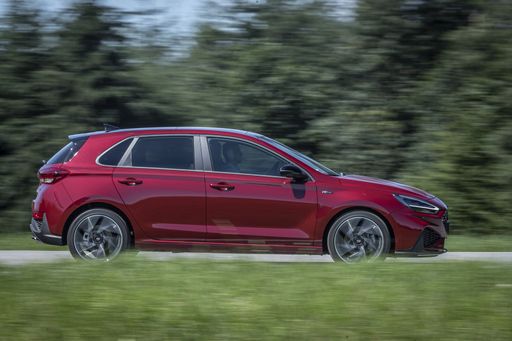 @ hyundai.news
@ hyundai.news
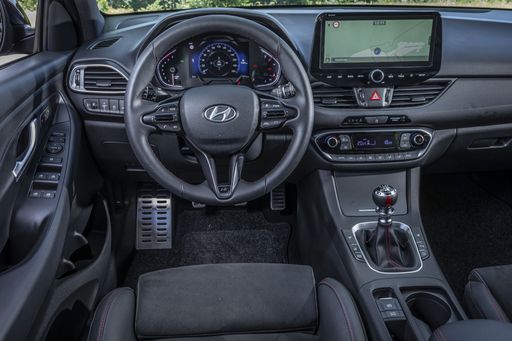 @ hyundai.news
@ hyundai.news
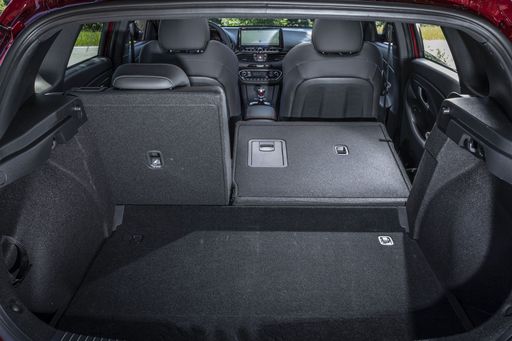 @ hyundai.news
@ hyundai.news
Toyota Hilux
The Toyota Hilux has long been celebrated for its remarkable durability and reliability, making it a favourite among those needing a robust vehicle for rugged terrains. Known for its unyielding performance, the Hilux combines practicality with a surprisingly comfortable driving experience, both on and off the road. With its distinctive design and advanced safety features, it continues to be a versatile choice for adventurers and professionals alike.
details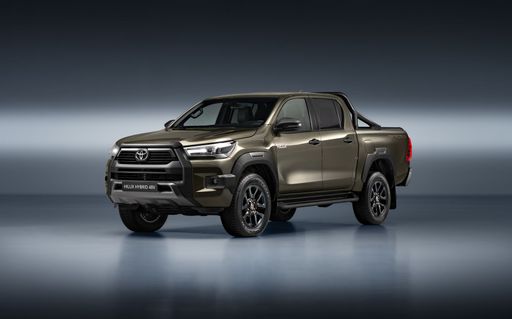 @ toyota-media.de
@ toyota-media.de
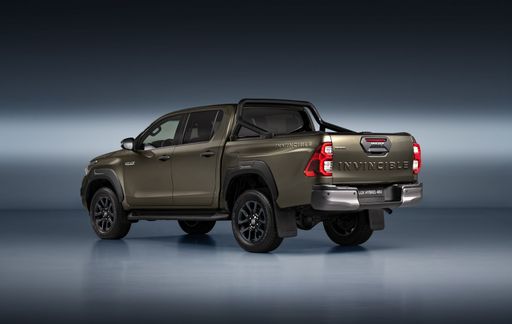 @ toyota-media.de
@ toyota-media.de

|

|
|
|
|
Costs and Consumption |
|
|---|---|
|
Price
23600 - 28800 £
|
Price
40800 - 52700 £
|
|
Consumption L/100km
5.6 - 5.9 L
|
Consumption L/100km
8.7 - 10 L
|
|
Consumption kWh/100km
-
|
Consumption kWh/100km
-
|
|
Electric Range
-
|
Electric Range
-
|
|
Battery Capacity
-
|
Battery Capacity
-
|
|
co2
126 - 133 g/km
|
co2
227 - 264 g/km
|
|
Fuel tank capacity
50 L
|
Fuel tank capacity
80 L
|
Dimensions and Body |
|
|---|---|
|
Body Type
Hatchback
|
Body Type
Pickup
|
|
Seats
5
|
Seats
5
|
|
Doors
5
|
Doors
4
|
|
Curb weight
1291 - 1407 kg
|
Curb weight
2185 kg
|
|
Trunk capacity
395 L
|
Trunk capacity
-
|
|
Length
4340 mm
|
Length
5325 mm
|
|
Width
1795 mm
|
Width
1855 mm
|
|
Height
1455 mm
|
Height
1815 mm
|
|
Payload
463 - 509 kg
|
Payload
1025 kg
|
Engine and Performance |
|
|---|---|
|
Engine Type
Petrol, Petrol MHEV
|
Engine Type
Diesel, Diesel MHEV
|
|
Transmission
Manuel, Automatic
|
Transmission
Automatic
|
|
Transmission Detail
Manual Gearbox, Dual-Clutch Automatic
|
Transmission Detail
Automatic Gearbox
|
|
Drive Type
Front-Wheel Drive
|
Drive Type
All-Wheel Drive
|
|
Power HP
100 - 140 HP
|
Power HP
150 - 204 HP
|
|
Acceleration 0-100km/h
9.6 - 13.1 s
|
Acceleration 0-100km/h
10.7 - 12.8 s
|
|
Max Speed
178 - 197 km/h
|
Max Speed
170 - 175 km/h
|
|
Torque
172 - 253 Nm
|
Torque
400 - 500 Nm
|
|
Number of Cylinders
3 - 4
|
Number of Cylinders
4
|
|
Power kW
74 - 103 kW
|
Power kW
110 - 150 kW
|
|
Engine capacity
998 - 1482 cm3
|
Engine capacity
2393 - 2755 cm3
|
General |
|
|---|---|
|
Model Year
2024
|
Model Year
2020 - 2024
|
|
CO2 Efficiency Class
D
|
CO2 Efficiency Class
G
|
|
Brand
Hyundai
|
Brand
Toyota
|
Hyundai i30
Introducing the Hyundai i30: A Blend of Performance and Innovation
The Hyundai i30 continues to impress the automotive world with its fine balance of performance, efficiency, and cutting-edge technology. As a quintessential hatchback, the i30 caters to a diverse range of drivers, offering a remarkable driving experience through its impressive powertrains and compact yet stylish design.
Dynamic Performance Options
At the heart of the Hyundai i30 lies a variety of engine choices designed to suit different driving preferences. The power output ranges from 100 PS to 280 PS, allowing drivers to choose an i30 that perfectly matches their performance needs. Whether you're inclined towards the spirited drive of the N Performance variants or prefer the efficiency of the mild hybrid versions, there’s a powertrain tailored for you.
Innovative Hybrid Technology
For those seeking enhanced fuel efficiency without compromising on power, the i30’s 48V mild-hybrid system offers a compelling option. Available with both manual and automatic transmissions, this innovative technology provides an ideal balance, reducing emissions and improving fuel consumption, with an impressive average of just 5.7 L/100km.
Sophisticated Design and Features
The Hyundai i30’s sleek design is complemented by thoughtful interior features that elevate the driving experience. With a boot space ranging from 395 to 450 litres, this hatchback ensures ample room for all your luggage needs. Furthermore, the car's aesthetic appeal is matched by its practical ergonomic layout, catering to both style enthusiasts and those seeking functionality.
Advanced Safety and Technology
The i30 is equipped with an array of advanced safety features, enhancing driver confidence and ensuring passenger safety. Its cutting-edge safety suite includes lane-keeping assist, forward collision warning, and adaptive cruise control. Additionally, the i30 offers a modern infotainment system, designed to keep you connected and entertained on every journey.
Conclusion: A Versatile Choice for Modern Drivers
The Hyundai i30 is more than just a hatchback; it’s a remarkable amalgamation of power, efficiency, and modern technology. Whether you're enticed by the high-performance models or the eco-friendly mild-hybrid variants, the i30 stands out as a versatile choice that meets the demands of today’s discerning drivers.
Toyota Hilux
Discover the Iconic Toyota Hilux: A Blend of Robustness and Innovation
The Toyota Hilux is a name synonymous with durability and reliability, making it a favourite in the pick-up market. But beyond its rugged exterior, the Hilux offers a multitude of technological advancements and engineering marvels that are worthy of exploration. In this article, we'll delve into the details that make the Toyota Hilux a remarkable vehicle in its class.
Engineering Excellence: Under the Hood of the Hilux
The Toyota Hilux is powered by a 2.4-litre D-4D diesel engine, delivering a robust 150 PS and a torque of 400 Nm. This engine configuration ensures that the Hilux maintains impressive pulling power and performance, be it on or off the road. The vehicle is equipped with an automatic 4x4 transmission, which enhances its off-road capabilities while ensuring a smooth ride on urban pavements.
Despite its powerful performance, the Hilux is relatively efficient for a vehicle of its size, offering a consumption rate of 8.7 L/100km. The 80-litre fuel tank capacity ensures fewer stops on longer journeys, making it a reliable companion for adventure seekers.
Structural Strength and Versatility
What sets the Hilux apart is its build quality. With a length of 5325 mm, width of 1855 mm, and height of 1815 mm, the Toyota Hilux embodies a commanding presence. It is designed to handle a payload of up to 1025 kg, making it a perfect choice for those requiring a tough utility vehicle without compromising on comfort and style. Moreover, its 5-seat capacity ensures that it's as comfortable for passengers as it is practical for cargo.
Innovative Features for Enhanced Comfort and Safety
The Toyota Hilux is equipped with a plethora of features aimed at enhancing driver and passenger comfort and safety. Its "Comfort 4x4 Automatik" line includes modern technological integrations, such as advanced infotainment systems and driver assistance features. This line of improvements ensures that every journey in the Hilux is as pleasurable as it is safe.
In terms of safety standards, the Hilux does not compromise. It comes packed with a range of driver assistance systems, ensuring a secure drive in both urban and off-road environments. Though it scores a CO2 efficiency class of G, plans for future iterations of the Hilux aim to incorporate more eco-friendly technologies.
Conclusion: The Toyota Hilux Legacy
The Toyota Hilux continues to be a cornerstone in the pick-up truck market, offering reliability, power, and innovation. With its blend of engineering excellence, versatile design, and cutting-edge features, the Hilux stands its ground as a leader in its category. Whether you are navigating city streets or exploring the wild, the Toyota Hilux is engineered to handle it all with grace and strength.
The prices and data displayed are estimates based on German list prices and may vary by country. This information is not legally binding.
